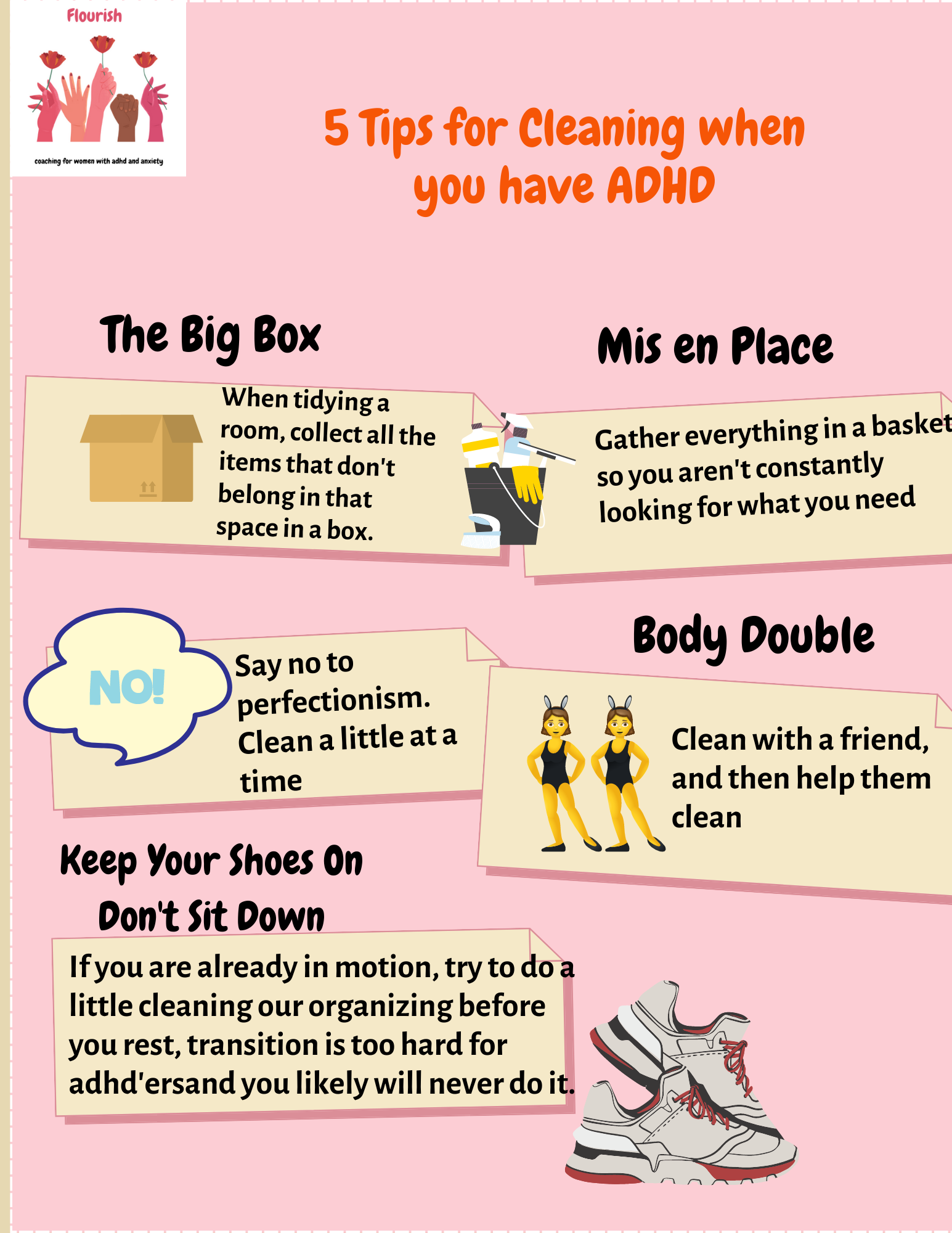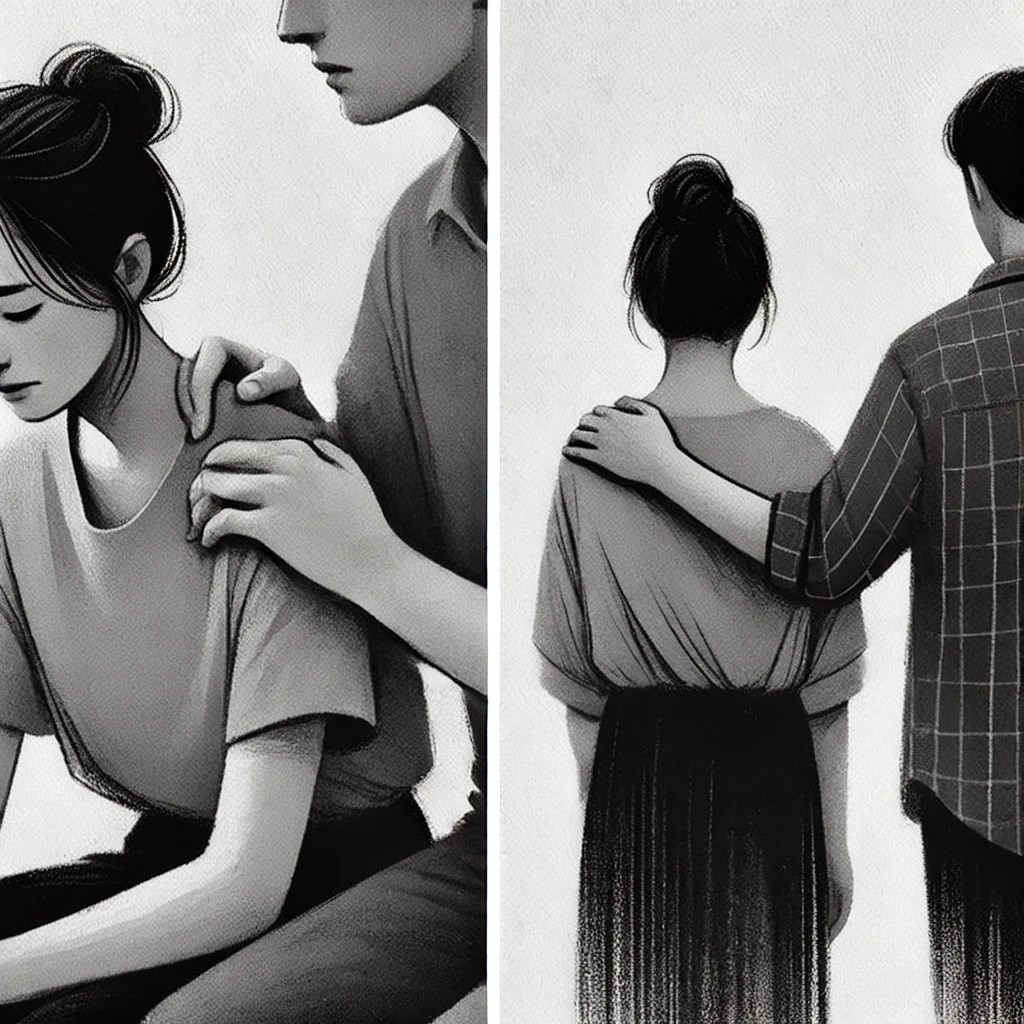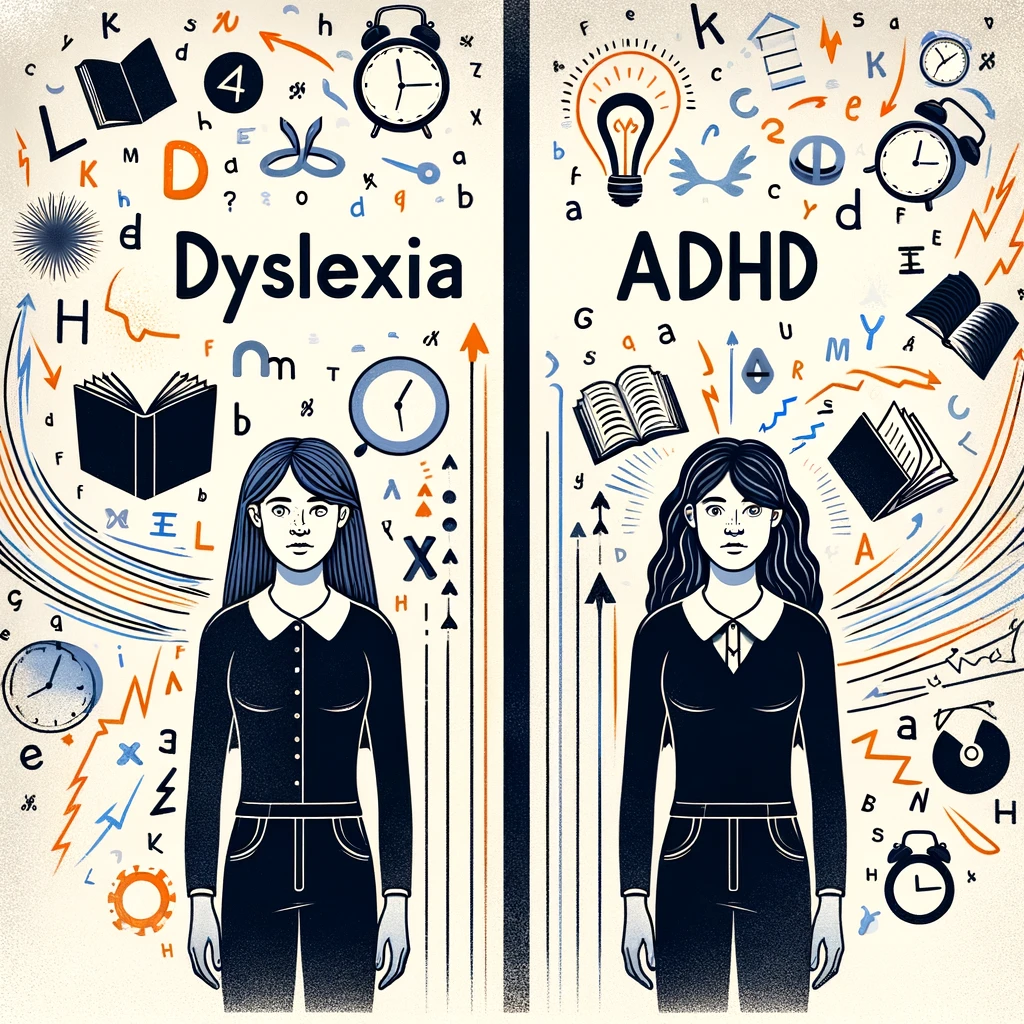
ADHD and depression
ADHD and Depression: Understanding the Connection
Introduction
Women who struggle with ADD or ADHD are at high risk for depression. They are twice as likely as men who have ADHD to be depressed and twice as likely as women without ADHD to be depressed. ADHD is serious! If you have ADHD and depression, you are not alone.
Everyone's pathway into depression is different, but there are four contributors women with ADHD and depression share. I'll explain a little about them on this page.
- Stress on their executive functioning skills causes them to feel they are falling short.
- The accumulation of shame because they don't meet the standards they think they should live up to.
- Lack of support and understanding for their ADHD from themselves and others.
- Difficulties regulating their emotions that lead them to feel bad about themselves.
ADHD and Depression: Feeling Not Good Enough
My clients with ADHD tell me they struggle with low self-worth feelings and a sense of never feeling that they are good enough. These issues steadily chip away at their mental health.
Women with ADHD often have an internalized sense of not being good enough, being a fraud, and a deep feeling of shame that has accumulated from years of feeling different and falling short.
Each time they feel that they don't measure up, these thoughts and feelings are triggered. In this day and age, women are still responsible for most childrearing, housekeeping, and secretarial work regardless of their position in a company.
The expectations are unreasonable. In our culture, an ideal woman has good executive functioning skills. She is organized, easily multitasked, calm, even-tempered, a great housekeeper, a perfect mother, a loving partner, beautiful, thin, self-disciplined, and has a successful career. How can any woman do all of these things?
Demands on executive functions can be overwhelming. These demands often increase as they move into more mature phases of their lives. ADHD women confide in me that they fall short in most significant roles. We know that women who have ADHD start to struggle in phases of their lives where their executive functioning skills are taxed. Most women with ADD will have their first depressive episode in adolescence.
Other possible times of stress are:
- College
- After the birth of a child
- During perimenopause and menopause
- Points in their career where it becomes more challenging
A Cycle that Leads to Depression
From an early age, the woman with ADHD feels she doesn't belong and can't measure up. She starts to try to hide who she is and what her perceived shortcomings are. This often results in deep shame and anger. Many women will work hard to create this façade, but it isn't easy to maintain. Additionally, her fear of asking for help ensures most don't know how much she is suffering and struggling. Her mental health starts to suffer.
The energy this takes, paired with the isolation, can contribute to the emergence of depression.
Emotional Regulation and Its Contribution to ADHD and Depression
Did you know that struggling with emotional control is also part of ADHD? Many women with ADD struggle with emotional regulation. Women who have ADHD can be emotionally reactive and dysregulated. We now know this is a crucial feature of ADHD. You might be quick to have angry outbursts and scream or yell at your children or spouse at home or work, burst into tears, and later be ashamed. This pattern only serves to strengthen your shame and humiliation cycle further.
While men might have these same issues, they will not manifest similarly. Men with angry outbursts or a short temper are more likely to be excused and given a pass. Women who yell at their children or cry at work are labeled unstable and have severe consequences.
This component of emotional dysregulation was previously not understood to be a part of ADHD. This is neurologically based and is responsive to stimulants. Understanding this is a part of your ADHD can help you to be more self-compassionate!
Five Things You Can Do Right Now to Help Yourself
Dr. Russell Barkley says treating your ADHD depends on five things:
- Get a thorough evaluation to see how your ADHD and depression are interacting.
- Learn everything you can about your ADHD and depression.
- Get on the right medication for both your ADHD and your depression.
- Change your environment to make you as healthy as you can, addressing both your ADHD and your depression.
- Get a good treatment provider who understands women's ADHD and depression.
Correlation Between ADHD and Depression

Does ADHD cause depression or is it genetic? There is evidence to suggest that if ADHD is medicated properly in childhood and people receive treatment, depression is less likely to occur, but some twin studies suggest that depression is simply more likely. Every person is different, and the nature-nurture controversy continues with depression. Getting help early is always best (Riglin et al., 2021).
ADHD or Depression: Which Is It?
On the other hand, many women who have ADHD fail to get diagnosed with ADHD. They may mistakenly be diagnosed with depression or be treated only for their depression and not for their ADHD.
Symptoms of ADHD, such as boredom, difficulty concentrating, and difficulties with sleep, can be signs of ADD and not depression. Are you not making progress in therapy or on your medication? Robert Olivardia in a workshop with Linda Roggli in 2019 says to keep in mind that when you are depressed, you lose interest in all activities. Still, when you have ADD, you only lose interest in activities that are not exciting to you.
Doctors who are not experts in ADHD may not understand these key differences. If you are struggling with depression, your sleep will be markedly different, but if you have ADHD, your sleep has likely always been a problem.
Drugs for ADHD and Depression
The primary class of meds for depression is SSRIs. These drugs essentially provide more serotonin to the neurons. Dopamine is the drug that seems most associated with ADHD, and stimulants are the drug of choice for ADHD. Thankfully, stimulants and antidepressants can be taken together. However, if you are treated for depression and not for ADHD, you will not get better. Wellbutrin, one of the SSRIs, seems to help with both ADHD and depression (Olivardia 2019). It's imperative that you be treated for your ADD if you are diagnosed with it. It is a lifelong condition that, when treated and supported, can make a tremendous difference for you.
Depression That Evolves as a Result of Other Issues
Some depression may have evolved independently of the ADHD. Can you have depression that is unrelated to your ADHD? Women may have depression that emerged from other experiences, but it is difficult to sift through and determine how every experience may or may not have contributed to depression. The important thing is to find a treatment provider who understands ADHD.
ADHD is likely to impact your functioning in all areas, and it can make your life very challenging. If you are struggling to feel well, you must treat your ADHD!
You must understand your ADD and work on self-acceptance and self-compassion. A comprehensive treatment program and surrounding yourself with a good support system will help your depression improve.
ADHD and Depression: Rates and Statistics
Rates of depression are so much higher in people who have ADHD, not just for women but also for men.
- 18.6 percent of those with ADHD are likely to have major depressive disorder versus 7.8 percent of the neurotypical population.
- 19.4 percent of those with ADHD are likely to have bipolar disorder versus 3.1 percent of the neurotypical population.
- 12.8 percent of those with ADHD are likely to have persistent depressive disorder versus 1.9 percent of the neurotypical population (Surman 2007).
ADD and Depression Sources
Sources:
- Surman, C. B., MD. (2007, May 31). Treating ADHD in Adults With Comorbid Mood Disorders. Retrieved September 11, 2020, from https://www.medscape.com/viewarticle/555679
- (Womenpalooza). (2019). Depression and ADHD women [Video]. Walden. Robert Oliverdia
- (Womenpalooza). (2017). Why women with ADHD are so likely to get depressed [Video]. Ellen Littman PhD
- Riglin L et al. (2021). ADHD and depression: investigating a causal explanation. Psychological Medicine, 51, 1890–1897. https://doi.org/10.1017/S0033291720000665







